Overview
Building the super app for creators to manage their super fans.
Backstage is an exclusive app for creators to connect deeply with their audience, monetize their content, and grow their creative business. The company raised $2M in seed funding from Accel, OnDeck, and PointOne Capital.
In this project, I worked on “Hypelink” feature that enables creators to work with their fans and make their online content go viral by adding an element of gamification.
Role
Lead Designer - Research, Interaction Design, Prototyping, QA Testing, Project Management
Team
1 Co-founder, 1 Product Manager, 2 Developers, 1 QA Engineer
Timeline & Status
1 Month, Feature is live on the product
Impact Metrics
The product grew from 0 to 100k users with a total of 40k + hypelinks launched to date.
100k+
40k+
24%
Demo
A short glimpse of the Hypelink creation and participation flows in the Backstage app.
Problem Space
Creators find it hard to make their content go viral and are looking for ways to get help from their fans.
Creators frequently encounter difficulties when it comes to promoting their content online and achieving virality. Currently, they lack the necessary tools and platforms to collaborate with their fans in a coordinated effort to promote their work.
The following is the story of Airrack, a creator who took matters into his own hands. He created a website where his fans could actively participate in promoting his content, ultimately helping him reach the impressive milestone of 1,000,000 subscribers on YouTube!
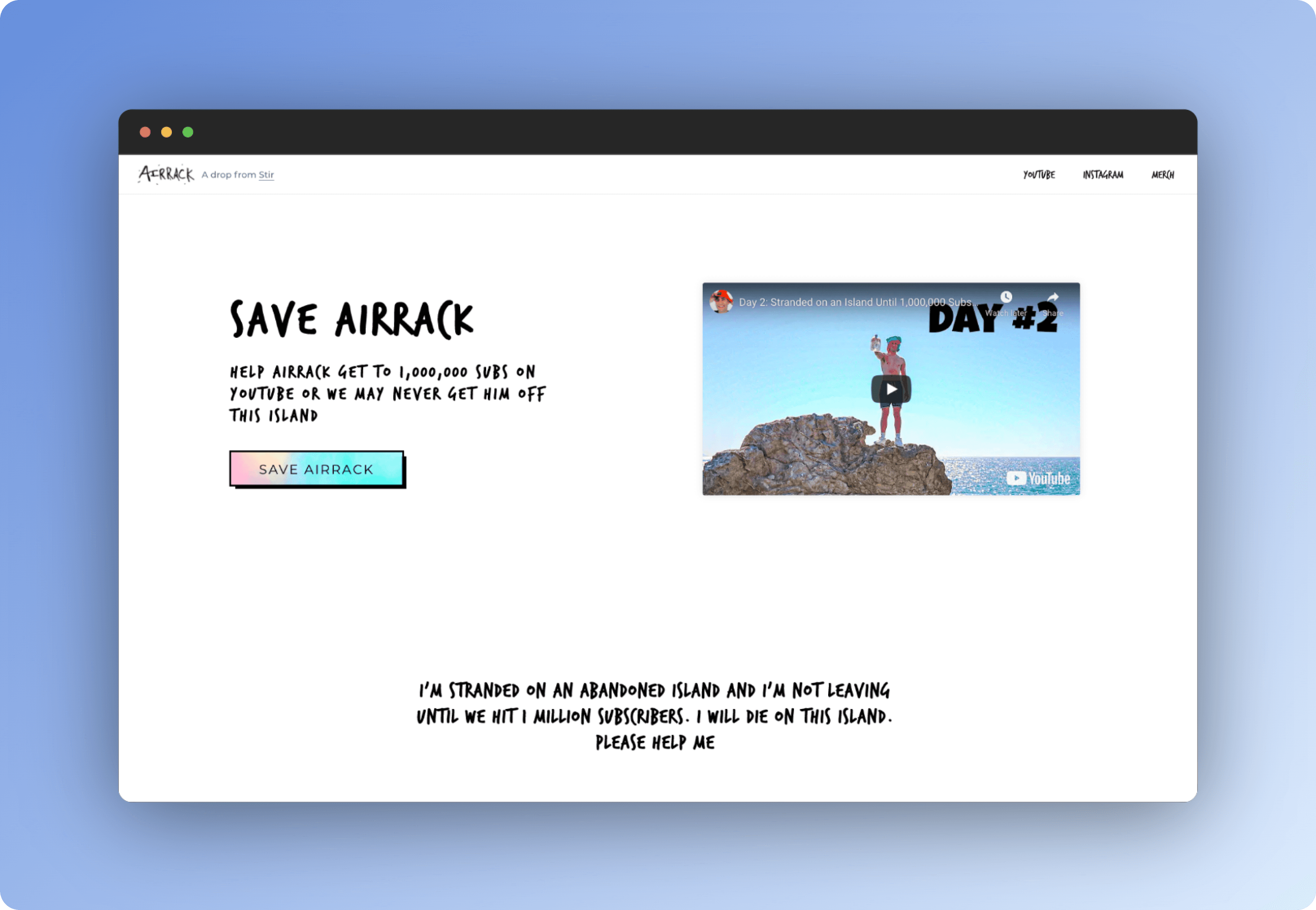
He developed a platform where each fan would receive a personalized link to share with their network. Depending on the number of subscribers they brought in, fans would receive rewards. Upon speaking with several creators, we discovered that many of them desired a simple way to create and launch similar missions. This insight inspired us to create 'Hypelinks".
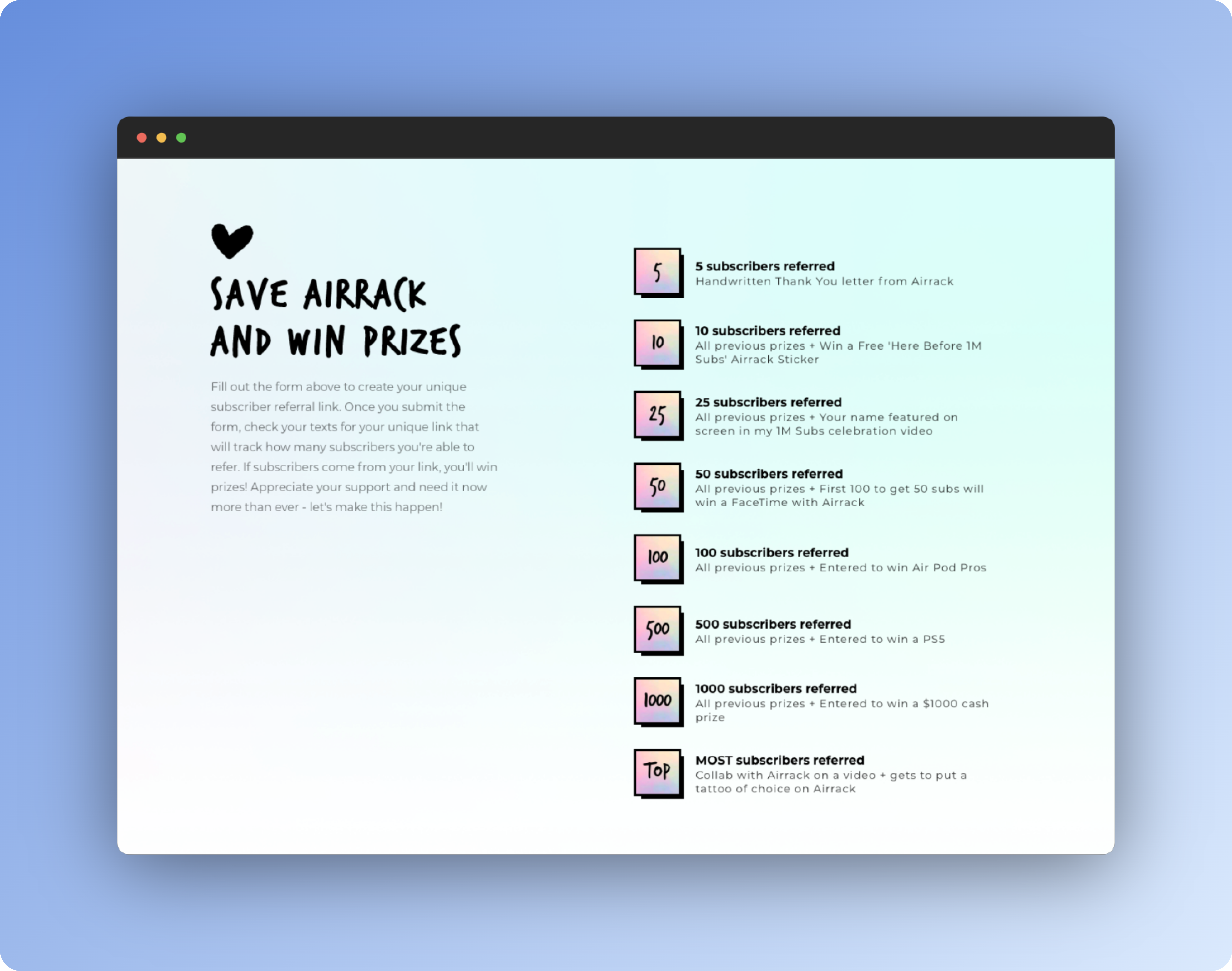
If you want to know more on how Airrack grew from 0 to 1 million subscribers in a year, check out this YouTube Video.
User Segment
Backstage is designed to cater to both creators and their loyal fans.
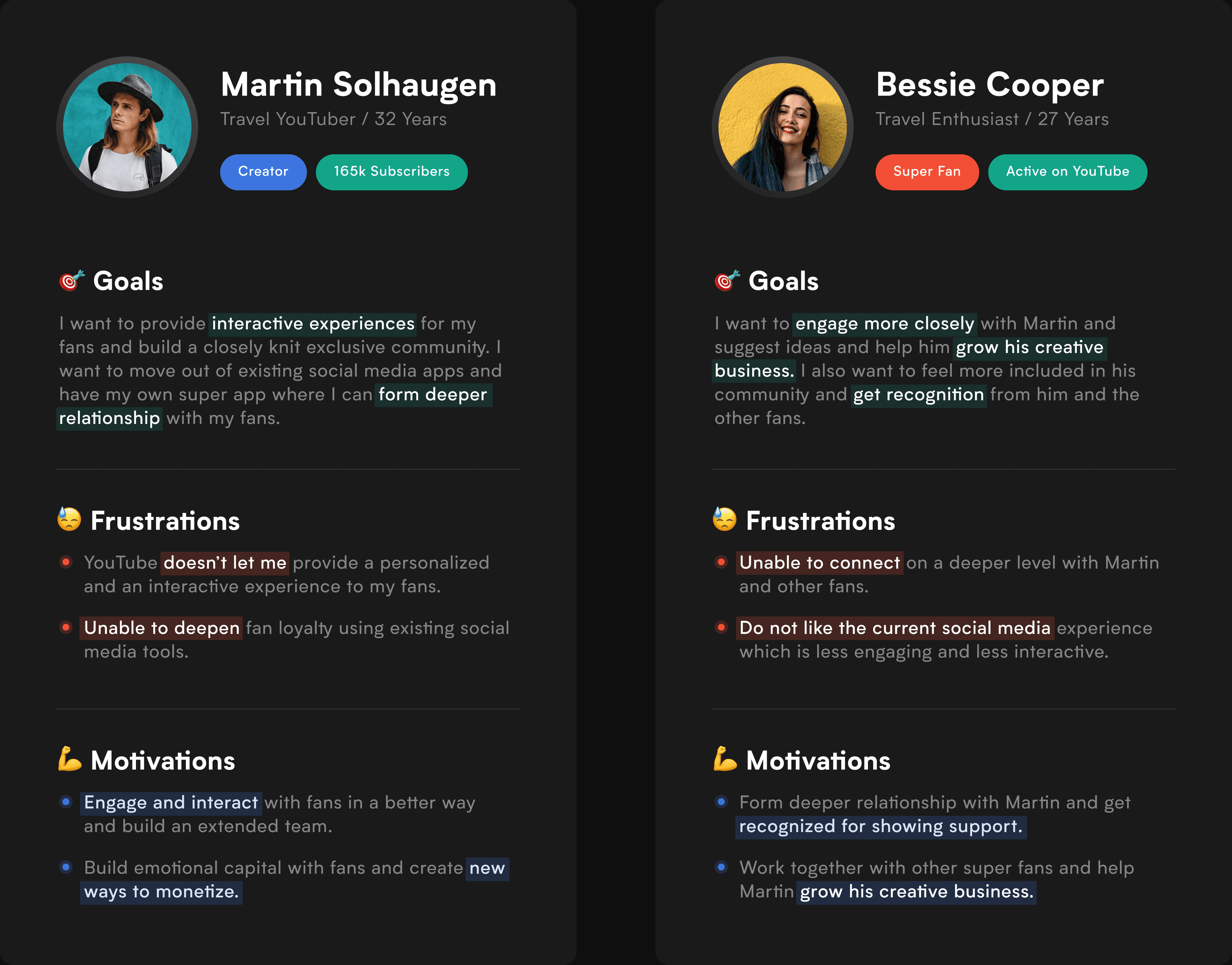
Design Process
A lean, ship fast, test and iterate approach.
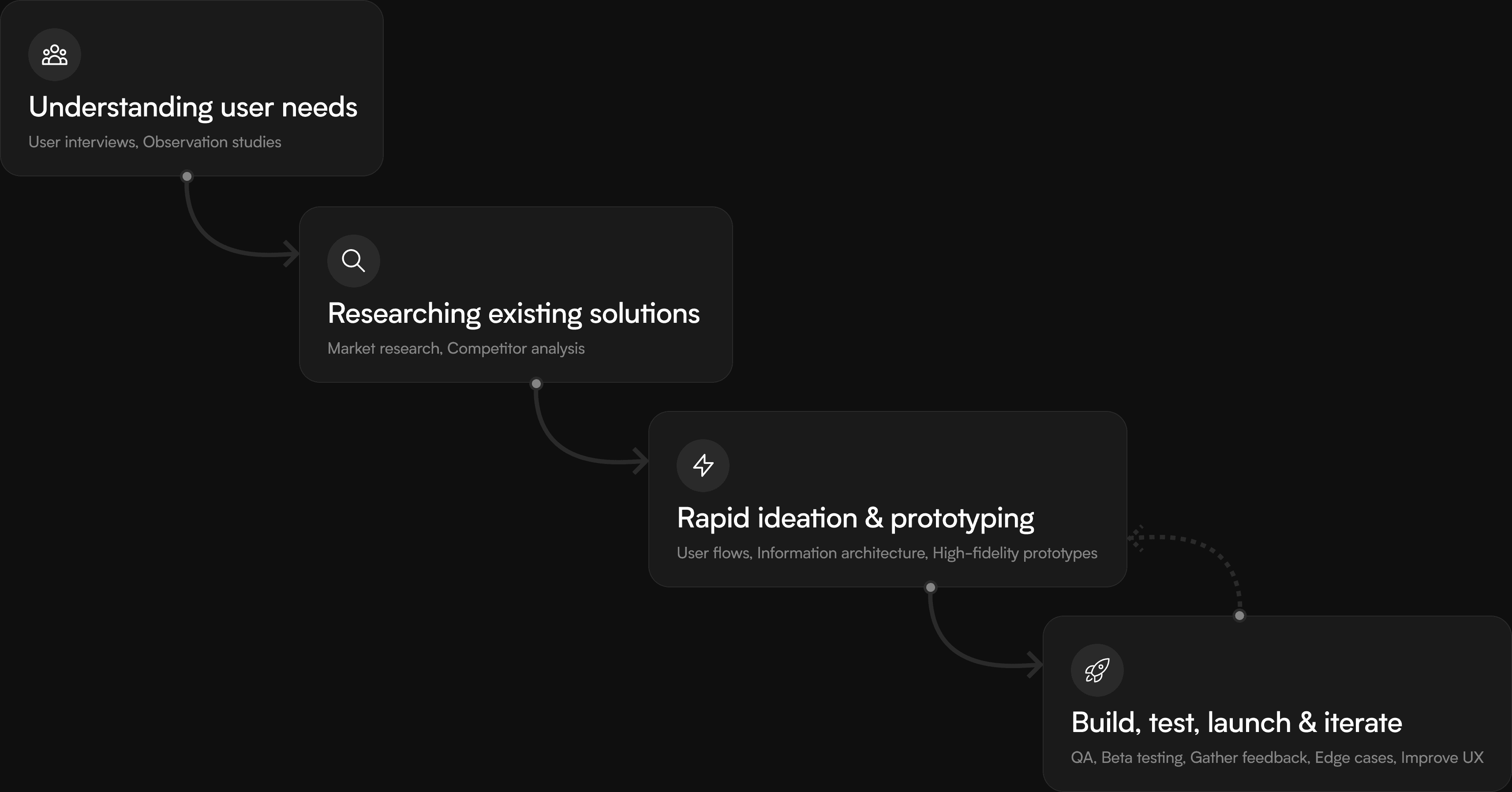
Solution: Creating a Hypelink
Creators can create and launch Hypelink missions in a simple, fast and intuitive way.
👉 Link to Figma Prototype
User flow: Creating a Hypelink
How does a Creator launch a new Hypelink mission using the Backstage app?
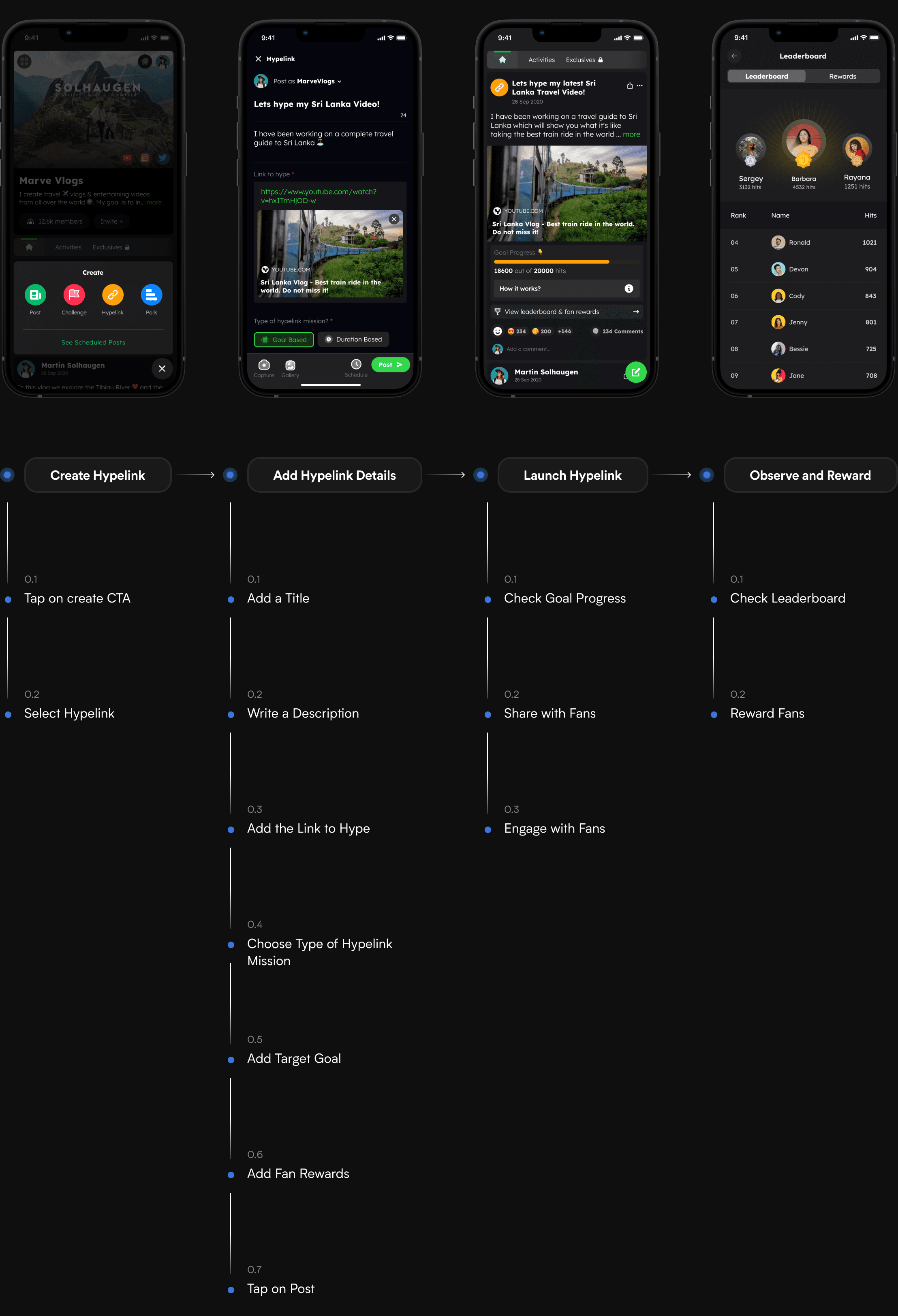
Solution: Participating in a Hypelink Mission
Fans can easily participate in Hypelink missions and win rewards for their effort.
👉 Link to Figma Prototype
User flow: Participating in a Hypelink Mission
How does a Fan participate in a Hypelink mission and win rewards?
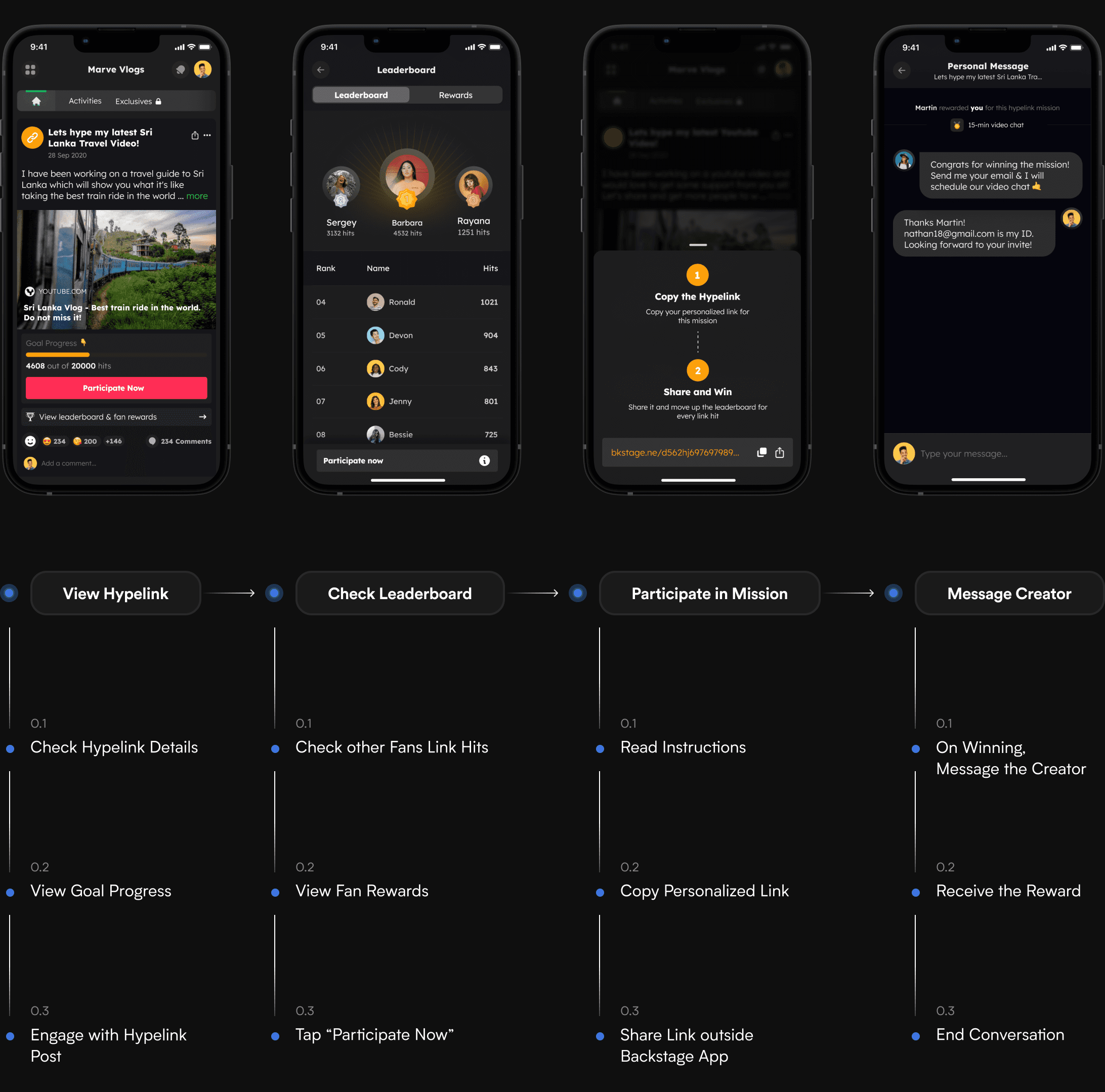
Challenges Faced
Working in a fast-paced, early-stage startup in a completely new domain was a challenging and enriching experience.
After the first few months, I was the sole product designer in the team, overseeing both product development and marketing efforts.
🧭 Unexplored Problem Space
Creator economy was a completely new space for me, and I had little understanding of the user segment.
🙋♂️ Different User Segments
I had to constantly switch context and design, considering that creators and their fans would have a different experience while using the product.
❗ Feature Creep
Because we were operating in a “ship fast and iterate” mindset with limited user understanding, I had to say no to many feature additions and enhancements.
Learnings & Takeaways
I loved working in a resource-constrained and ship-fast environment.
🔎 Understanding the core motivation of users is crucial
🧠 The smartest way to design is not to reinvent the wheel
When designing a product in an unexplored space, the smartest and quickest way to design is to take inspiration from existing products that work.
🙋♂️ Involving all the stakeholders at the start of the process is important
While collaborating and working in small teams, I learned the value of gathering ideas and input from every team member right at the outset of the design process.
❗ A good relationship with the PM & developers makes life easier
Learning to speak the language of PM and developers and making adjustments to work with them towards a common goal made my job as a designer less stressful.

